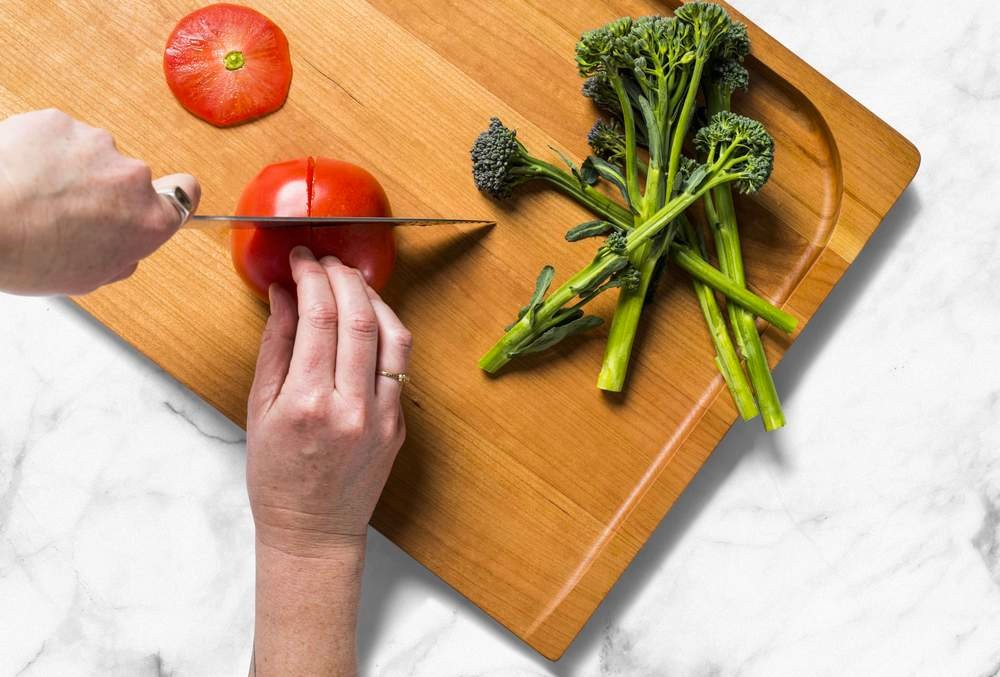
Different types of cutting boards are designed for certain jobs, including cutting raw meat or chopping vegetables. On the other hand, a cutting board is one of the most useful items in the kitchen, although it is frequently disregarded. Most of the time, we place our focus on finding the best knife we can find from a dependable manufacturer, one with the sharpest blade and the strongest metal we can find. In this article, you will learn all you need to know to choose the best cutting board for your specific requirements while preparing meat.
How do you know which cutting board is best for slicing pork, beef, and chicken?
Expert cooks recommend plastic cutting boards because they are easier to clean than their wooden counterparts. However, cutting them produces many crevices where germs may hide. Wood is often more long-lasting than other materials, and its surface is less likely to have major scratches, but it is more difficult to clean. Choosing the Top Cutting Board Kit is essential here.
Questions to Ask Before Buying a Wooden or Plastic Meat Chopping Board
If you’re unfamiliar with cutting boards, the sheer variety of options may come as a shock. But there are a few things to bear in mind before you make a purchase that will help you make a better informed decision.
Several factors, including the cutting board’s material, its size and weight, the extra features and capabilities you need from it, and your budget, should be considered in order to narrow down the list of potential options.
Material A cutting board may be made from almost anything and can take on many forms. Each has its own set of pros and cons, but if you choose the right board material to begin with, the rest of the choices will fall into place more easily.
Wood
Wooden cutting boards are the most popular option for board material since they are inexpensive and readily accessible. One of the main benefits of utilising a wood cutting board is that it reduces the wear and tear on your knives. This is because wood naturally has a softer surface. As a result, knives will last longer without prematurely dulling. They have a longevity that may be measured in decades. Cutting boards are best crafted from hardwoods like hard maple or sugar maple, walnut, teak, and cherry.
Given its intended usage in the kitchen, it’s crucial that a product be eco-friendly, and because wooden cutting boards are constructed from natural resources, this is especially true. Using a cutting board made of wood will also prevent bacteria from growing on the board’s surface since wood, like most plants, has naturally occurring antimicrobial chemicals that eliminate germs swiftly.
Conclusion
In addition, many people use a wooden cutting board to serve specialised items, such as cheese and meats, for charcuterie boards and much more, since it adds a particular aesthetic to the dining table. However, it is recommended that you use a separate cutting board for slicing raw meat and another board for making the presentations of your meals in order to preserve good sanitation.
